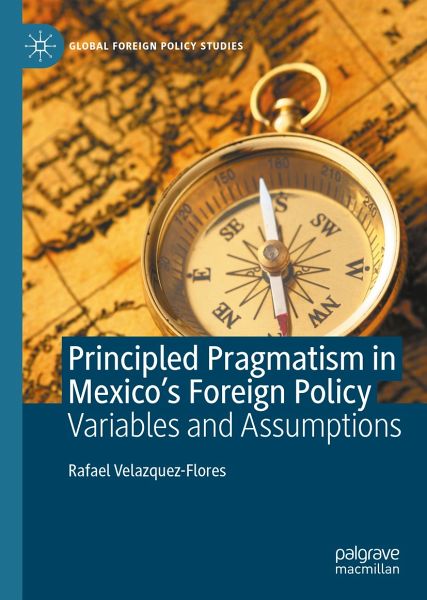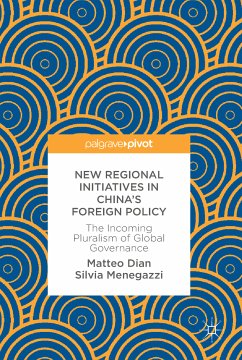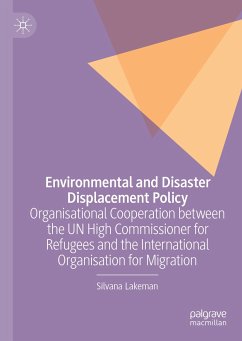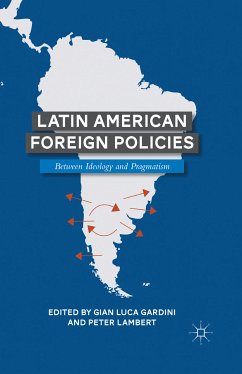
Principled Pragmatism in Mexico's Foreign Policy (eBook, PDF)
Variables and Assumptions
Versandkostenfrei!
Sofort per Download lieferbar
Statt: 149,79 €**
104,95 €
inkl. MwSt.
**Preis der gedruckten Ausgabe (Gebundenes Buch)
Alle Infos zum eBook verschenkenWeitere Ausgaben:

PAYBACK Punkte
52 °P sammeln!
This book explores Mexico's foreign policy using the 'principled pragmatism' approach. It describes and explains main external actions from the country's independence in the nineteenth century to Andrés Manuel López Obrador's administration. The principal argument is that Mexico has resorted to principled pragmatism due to geographic, historical, economic, security, and political reasons. In other words, the nation uses this instrument to deal with the United States, defend national interests, appease domestic groups, and promote economic growth. The key characteristics of Mexico's principle...
This book explores Mexico's foreign policy using the 'principled pragmatism' approach. It describes and explains main external actions from the country's independence in the nineteenth century to Andrés Manuel López Obrador's administration. The principal argument is that Mexico has resorted to principled pragmatism due to geographic, historical, economic, security, and political reasons. In other words, the nation uses this instrument to deal with the United States, defend national interests, appease domestic groups, and promote economic growth. The key characteristics of Mexico's principled pragmatism in foreign policy are that the nation projects a double-edged diplomacy to cope with external and domestic challenges at the same time. This policy is mainly for domestic consumption, and it is also linked to the type of actors that are involved in the decision-making process and to the kind of topics included in the agenda. This principled pragmatism is related to the nature of theintention: principism is deliberate and pragmatism is forced; and this policy is used to increase Mexico's international bargaining power.
Dieser Download kann aus rechtlichen Gründen nur mit Rechnungsadresse in A, B, BG, CY, CZ, D, DK, EW, E, FIN, F, GR, HR, H, IRL, I, LT, L, LR, M, NL, PL, P, R, S, SLO, SK ausgeliefert werden.












